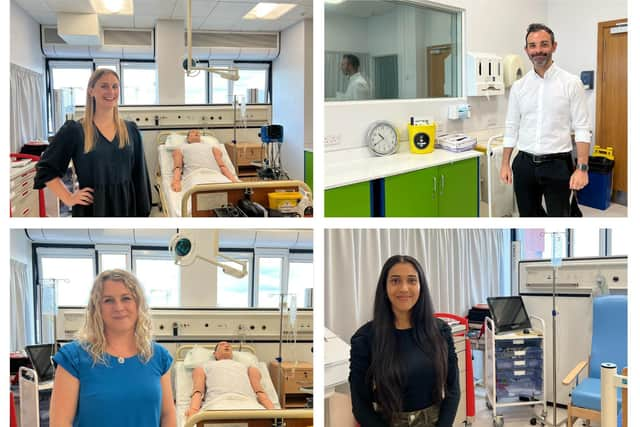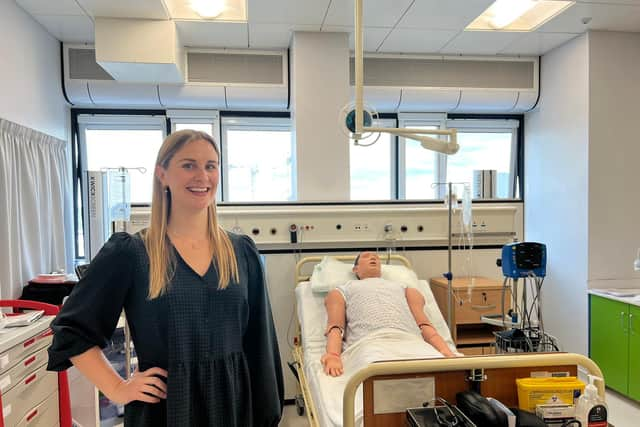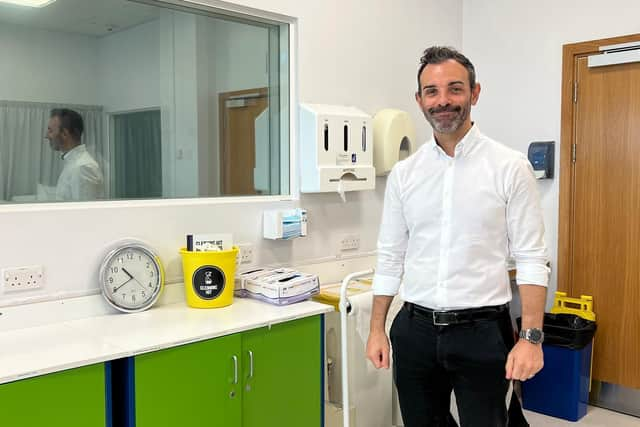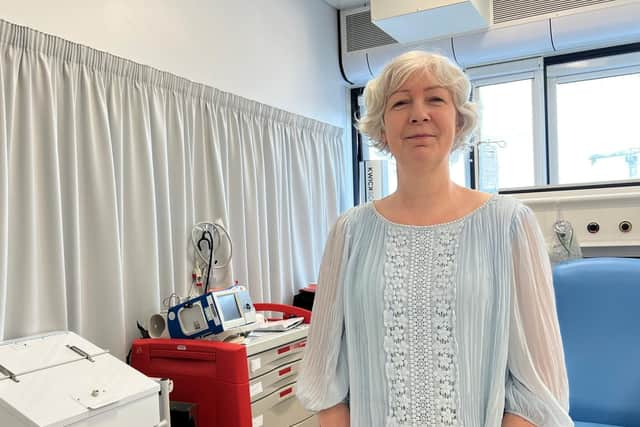'I just wanted to be able to help people': Why student with coeliac disease swapped dancing to become dietician
and live on Freeview channel 276
It was personal experience that led Sarah Smales, a final year BSc Dietetics student, to change career and choose the course at Leeds Beckett University.
The university has several trained dietitians leading courses in health, nutrition and environment.


Advertisement
Hide AdAdvertisement
Hide AdShe said: “I was diagnosed with coeliac disease in my early teens and my Mum had it when I was growing up as well, so I’ve always loved food, but I had to look at it from that angle.
"In my previous career as a dancer there’s a lot of eating disorders in that area and I just wanted to be able to help people and learn more about nutrition and what I’d be able to do to help.”
Sarah agrees that people skills are key in the role of a dietitian.
She added: “Compassion and really listening to understand is a big one. I think when I came into it, it’s like I want to learn about nutrition and I want to learn about food, and although you have to be passionate about that, actually it’s a lot more about people and a lot more about understanding people and knowing that everybody is different and seeing how you can help.


Advertisement
Hide AdAdvertisement
Hide Ad"It’s about educating people to make informed decisions and then supporting them with their own choices.”
Sarah shared her motivation and the part dieticians can play in improving people's lives as the university celebrates Dietitians Week.
The theme of this year’s week is the role of a dietitian.
Lisa Edwards, a senior lecturer in the university's School of Health, said: “We work with all age brackets, from ladies who are pregnant because we know if mums eat healthily during pregnancy it can affect the health of the baby right through childhood and adult life.


"Most babies are born healthy and well, so you would get dietitians who work with Mum and toddler groups or with school meals, for instance, making sure the standards are met, but unfortunately some babies are born too early or born with things not quiet right so we work on neonatal units where little, tiny babies may have had some surgery, and then right up through the age groups.
"We work in public health in terms of health promotion.
Advertisement
Hide AdAdvertisement
Hide Ad"We work with the government to prevent people becoming ill in the first place but then equally with all sorts of medical conditions. If you think of your digestive tract as like a donut - it goes in one end and then out the other - if you think of all the organs that might be involved the heart, the liver, the kidneys, the lungs all these sorts of things – we have dietitians now who work in all those specific areas of practice.”


Peter Butterworth is a lecturer in the School of Health at Leeds Beckett University.
He said dietitians can work in all sorts of places, not just hospitals as you may expect.
He added: “The diversity of the profession means that you may not always work in a hospital, you may use those skills to work within the media or within the sports profession or you may work within research as well.”
Advertisement
Hide AdAdvertisement
Hide AdAfter starting work in an office job, first year BSc Dietetics student Fatimah Khathun decided she wanted a total change of career.
She said: “I previously worked in finance a couple of years ago and then I worked in an office environment, and then I just realised that I wanted a change. I just wanted to be out there, and I’ve done a lot of voluntary work in the past helping people.
"I had a passion for cooking, and I thought I’d combine the two together – my personal interest in food and helping people and then I came across dietetics."
Fatimah explains what she thinks are the necessary skills for a dietician.
Advertisement
Hide AdAdvertisement
Hide AdShe said: “I feel like being able to communicate with people, having people skills and communication skills are really important to have but also being able to build a relationship with others, I feel like that’s quite important.”
Claire Gardiner is a senior lecturer in Leeds Beckett’s School of Health.
She said “What we have at Leeds Beckett is lots of variety in terms of the work students can do alongside peers from a nutrition course.
"We obviously have a very diverse population in terms of the mature student, the younger student, and we’re starting to see that change in terms of race as well so we’re starting to see a lot more of our peers from different ethnic backgrounds.
Advertisement
Hide AdAdvertisement
Hide Ad"I think the culture at Leeds Beckett is a really positive and inclusive culture where we try to represent everybody so that they have their role models and can see themselves within that workforce as well.”
Dietitians Week runs from June 20 until June 24.
Comment Guidelines
National World encourages reader discussion on our stories. User feedback, insights and back-and-forth exchanges add a rich layer of context to reporting. Please review our Community Guidelines before commenting.
